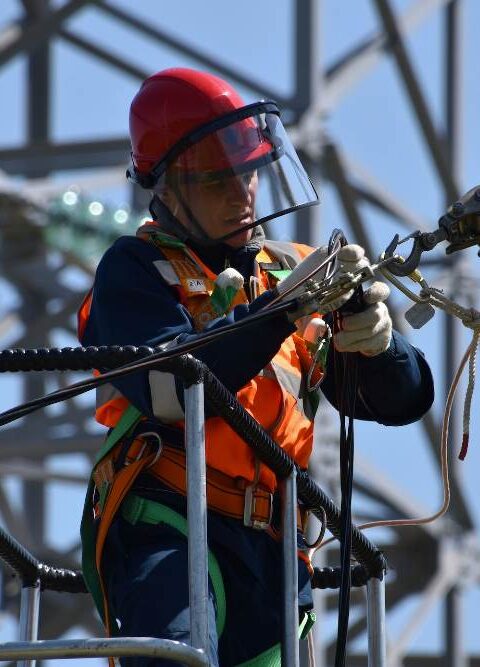For anyone going through the loss of a loved one with assets or property in their name alone in the Bay Area, the legal process of distributing those assets, known as probate, can seem complicated.
See https://www.investopedia.com/terms/p/probate.asp to learn more about probate.
When someone passes away, everything they own solely in their name must go through probate before heirs and beneficiaries can inherit. This process allows wills to be verified and debts to be paid before distributing what remains according to the person’s wishes or the state’s probate laws. Even if there is a will, probate is still required to legally transfer titles and assets from the deceased person’s name to new owners.
The probate courts in Alameda, San Francisco, and surrounding Bay Area counties handle thousands of cases each year. With many routine tasks involved, timelines tend to move steadily in non-complex circumstances. This article will explore the typical steps, timeframe expectations, and key factors that influence how long a basic, uncontested probate estate might take to settle in the Bay Area region of California.
Filing the Initial Documents
After someone passes away in California, their will (if available) must first be submitted to the probate court where they resided. Along with the will, a petition is filed by the administrator or executor (appointed either by the deceased person or by the court), asking to oversee settling the estate according to probate law. This initial filing also includes the death certificate and other identifying documents for the deceased.
Most Bay Area courts require these probate opening documents to be filled out precisely according to their guidelines. Once submitted with all necessary forms and payment of filing fees, it generally takes 4-6 weeks to process. The court must first review everything to ensure it is complete before accepting the case. After acceptance, letters will be issued, giving the administrator legal authority over the estate’s assets and affairs.
Some minor delays can happen if documents are incomplete or need corrections upon first submission, as long as all probate forms follow the court’s rules and include every required element. The filing of a basic estate usually takes around 6–8 weeks to get to the accepted stage and the issuance of letters. This first period lays the groundwork for the entire probate process.
Assets and Debts Inventory

After getting court acceptance of the probate filing, the newly appointed estate administrator or executor’s next major task is creating a full inventory of the deceased person’s assets and debts. This generally takes 1-4 months to complete, depending on the complexity of the individual’s finances and property holdings.
For assets like real estate, vehicles, bank accounts, and investments, documents must be gathered showing legal titles and most recent valuations. Heirs assist by providing records and contacting financial institutions. Any beneficiaries named in a will or trust must also be identified and notified of their interests.
Most Bay Area estates involve some legwork but minimal assets and debts, allowing their accounting to be finished within the shorter 1-3 month inventory timeframe. Complex estates may stall the process with harder-to-find assets needing valuation or multiple properties across locations.
Creditor Claims Period
Once all of the deceased person’s assets and debts have been identified and documented, they then enter the official creditor’s claims period. This stage is mandated by the California probate code to last 4 months from the filing date of the initial probate documents with the court.
Click here to learn more about the California probate code.
During this time, creditors can review the public notice and file any money-owed claims against the estate with documentation. The estate executor or administrator reviews each submitted claim carefully. They compare creditor information to the debt inventory to validate which requests involve the actual obligations of the deceased.
Any doubtful claims may require further investigation. The executor can request additional paperwork from creditors as proof. Occasionally, this leads to negotiated settlement agreements if full payment isn’t possible. However, once the 4-month period ends, no new creditors can come forward.
For simple estates without many creditors or complexity in claims, this phase usually goes smoothly within 4 months as mandated by law. As long as the initial debt accounting was thorough, the creditor review tends not to cause delays in a basic Bay Area probate case timeline.
Distribution of Assets

After any claims from creditors have been processed and the 4-month period concludes, the estate executor then prepares a final accounting of all funds collected and expenses paid. This is filed with the court along with a proposed distribution of remaining assets according to the deceased’s will or intestacy laws.
The judge will review the final accounting and ensure all mandated steps are completed appropriately. If approved, a court order is issued authorizing the executor to distribute the property and close out individual accounts. At this stage, heirs can expect to receive outright inheritable assets like real estate within 4 to 8 weeks.
More complex distributions involving trusts, multiple beneficiaries, or ongoing negotiations may prolong this timeframe by a month or two at most. However, for basic succession passing entirely by will or intestacy laws, clearly, distribution usually occurs 1 to 2 months after the accounting receives court approval in Bay Area courts.
With distribution complete, the final task is filing official receipts from heirs confirming delivery. Once submitted, the court will issue an order closing the estate case entirely within another month or less.
Most uncomplicated Bay Area estates that proceed smoothly through each required step without complications can expect the entire process to conclude within 9 to 12 months of total time. This includes the major phases of initial filing acceptance, asset/debt discovery, creditor review, accounting/distribution, and final closure.
Complex estates facing issues like real property valuation disputes, missing records, multi-state assets, or contested wills tend to require a minimum 12-18 months. Working closely with an experienced probate lawyer in the Bay area from the start helps maximize efficiency by ensuring accurate, lawful progression through each stage promptly.
Though the court sets 4-month mandated deadlines, additional investigation workups may extend particular stages as needed. Delays could also occur if filings contain errors requiring corrections or court backlogs slow case review/approval periods.
Overall, though, probate is intended to move steadily, when possible, to complete lawful distributions within about a year or less for routine cases involving a few contested issues. With proper planning and organization, Bay Area estates typically see the entire process successfully wrapping up within the 9–12 month timeframe.







